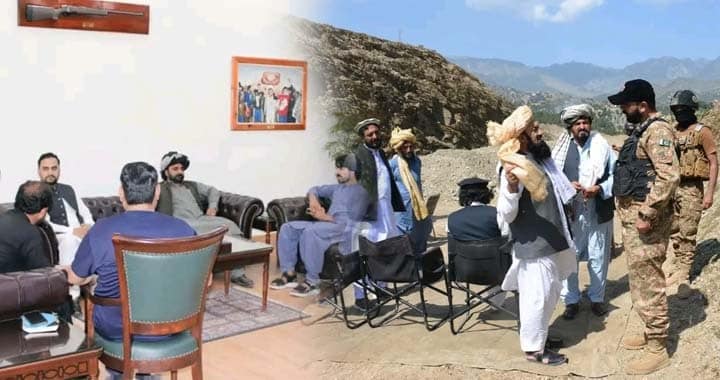In a country long scarred by the shadows of militancy and the blood-stained outcomes of ongoing war against terror, a powerful and transformative shift is underway. From the rugged mountains of Khyber Pakhtunkhwa to the resilient plains of Balochistan, the people of Pakistan, once cautious bystanders, are now stepping forward to become a pivotal force in the nation’s war against terrorism.
This evolving dynamic is not just encouraging, it is essential.
Tribal Resolve in KP: Unity Against Terror in Tank, Lakki Marwat, and South Waziristan
In recent weeks, significant developments have emerged from the tribal belt, where communities once caught in the crossfire are now rallying behind Pakistan’s security forces. After Lakki Marwat, the Dottani tribe of Tank district has publicly pledged full support to the Pakistan Army in its anti-terror efforts.
In a grand jirga held in Manzai, the Commandant of Gomal Scouts met with tribal elders and youth leaders to discuss the region’s security challenges. The jirga, a traditional decision-making platform, saw heartfelt tributes paid to the sacrifices of the security forces and a resounding commitment from locals to stand shoulder to shoulder with them in eliminating terrorism.
The Commandant assured the gathering of continued development projects aimed at improving lives in the area, because security and socio-economic progress are intertwined, he emphasized. The message was clear: peace is a shared responsibility, and only through collective effort can it be preserved.
Meanwhile, in South Waziristan, under the leadership of a commanding officer, another crucial jirga was held with the elders of Shamal Khel and Aman Khel tribes. The emphasis here was on trust-building, early threat detection, and strengthening the civil-military bond.
“The people are the first line of defence,” the officer remarked, “and their cooperation is the cornerstone of lasting peace.” The discussions also touched on education, discipline, and local development, with special mention of the under-construction Shakai Dam, touted as a future lifeline for the region’s economy.
Kurram and Khyber: Building Trust, Ensuring Peace
In Kurram’s Dogar area, a Pakistan Army officer addressed a public gathering and made an appeal both blunt and brotherly, “There is no benefit in defiance or distrust. If you have concerns, come talk to us. We’re your brothers. Let’s build peace, together.”
Such open dialogue, rare in conflict zones, reflects a maturing counterinsurgency approach that values inclusion over imposition. These interactions are reinforcing a sense of shared ownership over peace efforts.
Balochistan’s Turning Tide: Bugti and Lango Tribes Step Forward
Equally inspiring is the shifting ground in Balochistan, where the Bugti and, more recently, the Lango tribe have openly rejected the terror elements that once sought to manipulate local grievances for violent ends. This wave of grassroots resistance to militancy has played a key role in successful intelligence-based operations across the province in recent months.
These communities, often portrayed as marginalised, are now proving to be frontline allies in securing their own future, a future free from the fear of terrorism.
D.I. Khan: Civilians and Security Forces in Dialogue for Peace
In Dera Ismail Khan, Station Commander Brigadier Muhammad Abu Bakar held an important meeting with members of the Dera Peace Committee, which included a cross-section of civil society, elders, scholars, traders, and youth representatives.
The meeting explored the city’s security outlook and ways to enhance peace-building efforts. Brigadier Abu Bakar emphasized the importance of translating patriotism into practical steps that secure the future for the next generations and honour the sacrifices of Pakistan’s martyrs.
He reiterated that the army and people must act as one, and that local leaders hold the key to community-level vigilance. The Peace Committee vowed full cooperation and assured their unwavering support to national security institutions.
The People’s Power: A Game-Changer in Counterterrorism
From Khyber to Kohlu, what is unfolding is more than just an alliance, it is a resurgence of national unity, grounded in shared pain and a collective desire for peace. This public awakening, this refusal to allow terrorists to hijack communities again, is what makes today’s operations more effective than ever before.
Where once terrorists operated in the shadows with impunity, they now face communities willing to report, elders ready to resist, and young people motivated to defend peace rather than destroy it.
Pakistan’s security forces have always shouldered the burden of protecting the nation, often at immense cost. But today, they are no longer alone. The silent majority is no longer silent. They are speaking, and standing, for peace.
In the battle against terrorism, guns alone cannot win. It is this growing civil-military cohesion, this people-powered resistance, that will prove to be the ultimate game-changer.





